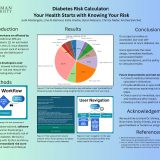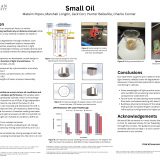New Grand Challenges Initiative Presidential Fellow – Dr. Joshua Fisher Welcome Dr. Fisher to our GCI Team!
September 24, 2021
Join us in welcoming our new Grand Challenges Initiative Presidential Fellow, Dr. Joshua Fisher! Dr. Fisher is the Presidential Fellow of Ecosystem Science focusing on terrestrial ecosystems, water, carbon, and nutrient cycling using a combination of supercomputer models, remote sensing, and field campaigns from the Amazon to the Arctic. Dr. Fisher completed his undergraduate and graduate degrees from UC Berkeley, and postdoctoral work from the University of Oxford. Dr. Fisher was at NASA’s Jet Propulsion Laboratory (JPL) for over a decade, where he was the Science Lead of the ECOSTRESS mission. Dr. Fisher is currently the Science Lead for Hydrosat, a space company focused on plant water/use stress. Dr. Fisher has been named one of the world’s “most influential” researchers, in the top 0.1% of scientists with papers in the top 1% by citations for the past 3 years in a row.
We did a little Q&A with Dr. Fisher to get to know him and his research!
Q&A with Dr. Joshua Fisher
Current area of research and how you became passionate about it?
I am a terrestrial ecosystem scientist focusing on water, carbon, and nutrient cycling using a combination of supercomputer models, remote sensing, and field campaigns from the Amazon to the Arctic.
My parents split when I was little, and I spent many years flying back and forth between my mom in Los Angeles and my dad in Alaska. It may have been all that time staring out the window at the changing landscapes between those two environmental extremes that got me interested in big scale patterns and remote sensing. As an undergrad at UC Berkeley, I liked all the sciences and couldn’t pick just one for a major. The environmental sciences were a great choice to combine sciences and get a chance to get outdoors now and then.
In my Ph.D. at UC Berkeley, I started playing with satellites, mostly because they were cool toys in the sky. I developed new techniques to observe parts of the water cycle from space, connecting that with measurements I was making on the ground and from towers. At the same time, climate change was blowing up and I found myself uniquely positioned working on global scale processes using cutting edge technology. For my postdoc, I diversified a bit and moved to the University of Oxford where I developed the nitrogen cycle for the UK climate model. I also spent several years leading a nutrient fertilization field campaign in the Amazon and Andes. I converted to a faculty position at Oxford and taught remote sensing and GIS. Next, I moved to NASA’s Jet Propulsion Laboratory (JPL), where I was the Science Lead for the ECOSTRESS mission, focused on plant water use and stress from the International Space Station. I am now the Science Lead for Hydrosat, which is launching a constellation of satellites to advance thermal measurements for ecosystems, agriculture, water, fire, and more.
While I’ve done a decent amount of research to this point in my mid-career, my passion and career outlook have also evolved. I’ve published nearly 200 papers and have been named one of the world’s “most influential” researchers, in the top 0.1% of scientists with papers in the top 1% by citations for the past three years in a row. I found myself asking what am I going to do for the next half of my career—publish another 200 papers? While research is critically important and very much a part of who I am, I think there is something extremely valuable in education, both societally and personally. This is in part what brought me to Chapman, and my passion now combines education and science. I’m excited to work interdisciplinarily across the sciences and engineering, as well as with the arts and humanities. Chapman is a great home for these passions.
What would you be if you weren’t a scientist?
Between my undergraduate and graduate degrees, I worked for the US Environmental Protection Agency. One of the projects I led focused on Environmental Justice. I found this work incredibly meaningful—it was an opportunity to help both people and the environment at the same time. I’ve published and taught on Environmental Justice, but my career direction ended up moving more towards biophysical science and technology. Still, I’ve always held a deep fondness and respect for Environmental Justice, as well as sociology; so, I think that could have easily been a path I could have walked.
Or, maybe an acrobatic yoga teacher. I do a lot of acroyoga and am pretty good at it, so there’s also that. Maybe if we solve climate change and there’s no more science left to do, I’ll go that route. In the meantime, I’ll keep it as a side hobby 🙂
What is the best advice you’ve ever received?
The best advice I may have ever received may have been from myself. Early on as an undergrad at UC Berkeley, I struggled and focused so much on grades. At some point I decided that all the stress was not worth it, and that I would focus on learning for the sake of learning, and not worry about the grades. Naturally, my grades skyrocketed, and I was enjoying my education so much more than before.
This type of advice is something I need to keep reminding myself throughout life. We are constantly judged, scored, valued and devalued. It doesn’t matter if you’re a student, professor, or president. We need to keep reminding ourselves that happiness does not come from the judgement from others. We must find happiness and acceptance with ourselves, and others will see that too.
How do you like your coffee?
I worked for a coffee (Peet’s) and bagel shop in high school. Because of freshness standards, we had to brew new pots of coffee every hour. But, there would be plenty of hours where no one would come in for coffee. So, we would just drink it all instead of dumping it. Giant mugs lined with whipped cream, pumped with Ghirardelli chocolate, filled with French vanilla coffee. *shudders* I was so addicted. When I left that job, I decided to swear off coffee forever. I still like coffee, but I try to avoid it as much as possible.
To learn more about the Grand Challenges Initiative and its faculty, click here!


